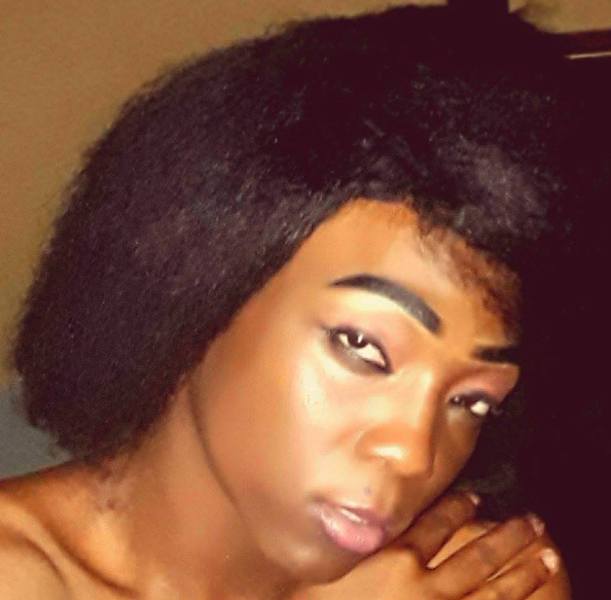Meet the Cameroonian transwoman who is challenging stereotypes
By Mike Daemon
A Cameroonian transwoman publicly known as Shakiro is challenging the norm by daring to openly live her authentic life in Cameroon as a woman that she truly is.

Shakiro
Shakiro who is a native of Bafang, a town in Cameroon, is fearless, and completely owning her identity as a transwoman despite harsh laws against sexual minorities in the country, she continues to prove to everyone that her very nature as a transwoman is as valid as that of any cis woman out there.
Shakiro describes herself as a “woman in a man’s skin” and believes in self acceptance, and so encourages others to be themselves regardless of what people might say or think about them.

Shakiro
Listen now: Rizi Timane: My Journey as a Transgender Nigerian
In one of her Facebook posts, she wrote:
“The goal in life is not to please everyone but it’s to be yourself at 100 % and move forward with those who accept you as you are at 100 %. Don’t change your personality depending on the others.
I have tried to change several times at some point in my life because I also wanted to please my entourage like learning to live in society! Despite the fact that I was doing the, to no longer abuse my provocative outfits, some always criticized me so I decided to do what I like. And I love what I do. #Shakiro is my alter ego (My 2th personality) that is to say the woman who is in me and the woman who is in me is a bold bitch who is not cold at Eyes”
Read also: Vera, Nigerian transgender comes out, talks life and shares personal story
Shakiro’s courage to live her truth is indeed admirable, especially in an era where people are being labeled and expected to fit into boxes. She is definitely going to be an inspiration to other transwomen out there who may be battling with their sexuality or gender identity, especially in African countries where many are still ignorant in regards to issues of sexuality.
In Cameroon, lesbian, gay, bisexual, and transgender persons constantly face persecution with absolutely no legal protection whatsoever. In fact, there is no recognition at all for their basic human rights and thus being subjected to all forms of abuse and discrimination.

